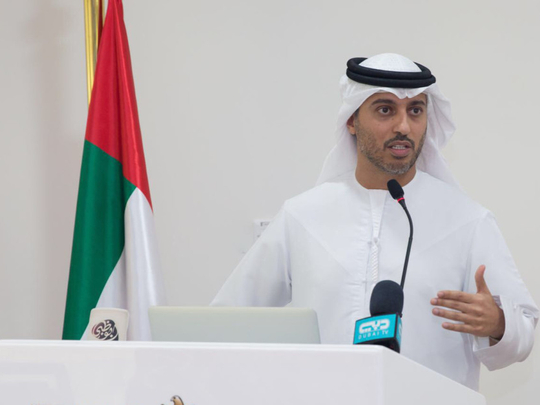
Dubai: The Ministry of Education (MoE) announced on Wednesday the launch of the National Higher Education Strategy at a media briefing held at the ministry’s headquarters in Dubai, as the initiative aims to bolster the country’s higher education standards and quality.
The launch of the strategy represents the ministry’s ongoing efforts in implementing education systems with an integrated framework, following the recent launch of the Emirati School Model.
The strategy will be based on four key components: quality, relevance, innovation, and efficiency, with the programme being rolled out gradually.
Commenting on the new strategy, Hussain Ebrahim Al Hammadi, Minister of Education, said: “The fundamental changes to the education system represent the ministry’s alignment with the country’s future vision and plans, and are overseen by the nation’s wise leadership. The educational developments target the building of Emirati students’ talents in both higher and general education, and will be exercised in a comprehensive and effective approach. [The strategy] will deliver a modern, global, educational model to Emirati students, who form the focal point of national investments and the country’s biggest assets.”
Al Hammadi said the new programme would employ the best educational practices, preparing students with the skills they need for the job market.
“The National Higher Education Strategy is tied to the ministry’s vision for general education, and responds to the challenges identified by employing the latest educational best practices. The National Higher Education Strategy will be consistent with strategies designed for general education, and will boost overall national education standards, ultimately affecting educational systems and career opportunities — by preparing students with the knowledge and [the] skillsets [they require], enabling them to become talented, highly educated and knowledgeable individuals who meet the needs of the job market.”
Meanwhile, Dr Ahmad Bel Houl Al Falasi, Minister of State for Higher Education and Advanced Skills, said the strategy was in line with the UAE’s continued vision of investing in human capital.
“Since our country’s founding, the UAE has sought to invest in human capital by focusing on education. As a result, we now have a sophisticated educational framework, aligned with global competitiveness standards. “The strategy is made up of four pillars — quality, relevance, innovation, and efficiency. Together, the pillars will help build a generation that is productive and equipped with the knowledge and skill set to contribute to the development of a knowledge-based economy,” he added.
“Furthermore, the four pillars will enable future generations to excel in both the public and private sectors, through the promotion of research and entrepreneurship. This is reflective of our national identity, and vision for a tolerant and ethical society,” he said.
Dr Al Falasi said that creating partnerships with the private sector would also play a role in the new strategy, as the education sector looks to align its programmes with the needs of the job market.
“The Higher Education strategy will be achieved and implemented over several phases with an initial ramp up in the short-term. We want to align with our partners and increase collaborations with the private sector. In the long-run, we will drive economic development with a focus on strengthening university programmes, and aligning specialisations and research studies with the demands of the job market.”












